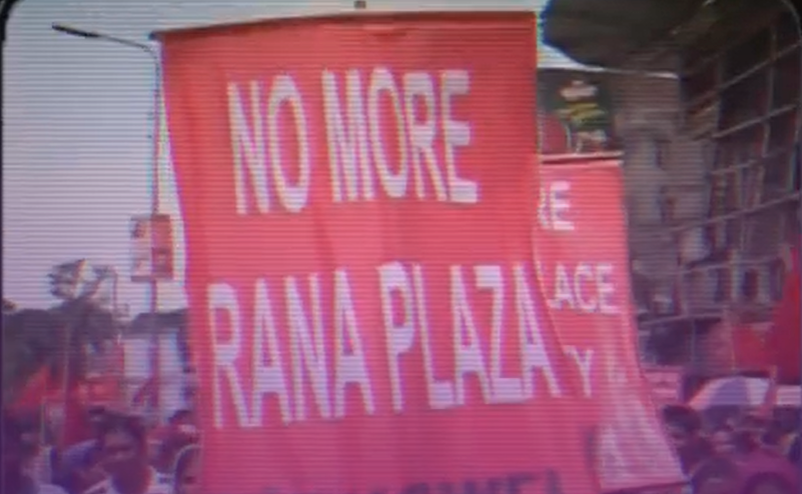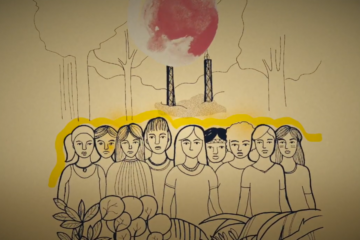It’s been ten years since that April 24th, 2013, when a huge garment factory building collapsed in Bangladesh, killing 1,138 people, mostly women, and injuring thousands. The collapse of the Rana Plaza building was a tragedy that shook workers’ organizations and women’s movements around the world, as it painted a picture of the consequences of increasingly precarious labor carried out by women who are granted no rights and no safety. The collapse painted a picture of what happens when putting profits before life.
International denunciations have been an important tool to demand justice and reparation for the people who were affected by the disaster in Bangladesh. Since 2014, the World March of Women has put April 24th on its calendar as a day for international action to express feminist solidarity and denounce transnational corporate power. Militants from different countries remember what happened in Bangladesh and make connections between Rana Plaza and the situations they experience in their own countries, denouncing transnational corporations in the garment industry, but also in other industries including food, mining, war and militarization, financialization of nature, and others.
April 24th is a day of action that every year provides ever deeper feminist reflections about the impacts of corporate power on women’s lives, work, and territories. This is what the World March of Women argues in it international statement released this year to mark this date: “Ten years after its collapse, we see in the Rana Plaza crime how the warmongering capitalist project is still being updated. Workers, women, people, lands, nature are being victims of the abusive tools of this system.”
This year, we find ourselves remembering the Rana Plaza crime in light of a wide and extended wave of militarization and war industry raging around the globe. This wave is inherently connected to the exploitation of workers, as it is another form of capitalism’s tools of plunder and exploitation, reinforcing authoritarianism and violence against working class, women, and peoples, as we are witnessing through the oppression and torture of women in Iran and the complete annihilation of women’s education and participation in public life in Afghanistan.
World March of Women International Statement, 2023
War, precarious work, climate crisis—these are all outcomes of the action of transnational companies, as described in the video produced by Real World Radio (RWR) and Friend of the Earth International (FOEI) for the date.
“Hydropower, mining and oil transnationals, agribusiness and food, pharmaceutical, technology and textile corporations. All of them have negative and specific impacts on peasant, Indigenous and urban women,” the video states.
Resisting displacement, violence in rural areas, and land, air, food, and water pollution—these are all struggles waged in territories around the world, especially in the global South, and they all have a common enemy: transnational companies. As the RWR and FOEI explain, these companies provide false solutions to the conflicts they create themselves, while undermining and criminalizing the different forms of knowledge of the peoples. To dismantle corporate power is, therefore, a fundamental agenda for feminism and for all movements that struggle for environmental justice, food sovereignty, equality, and peace.




